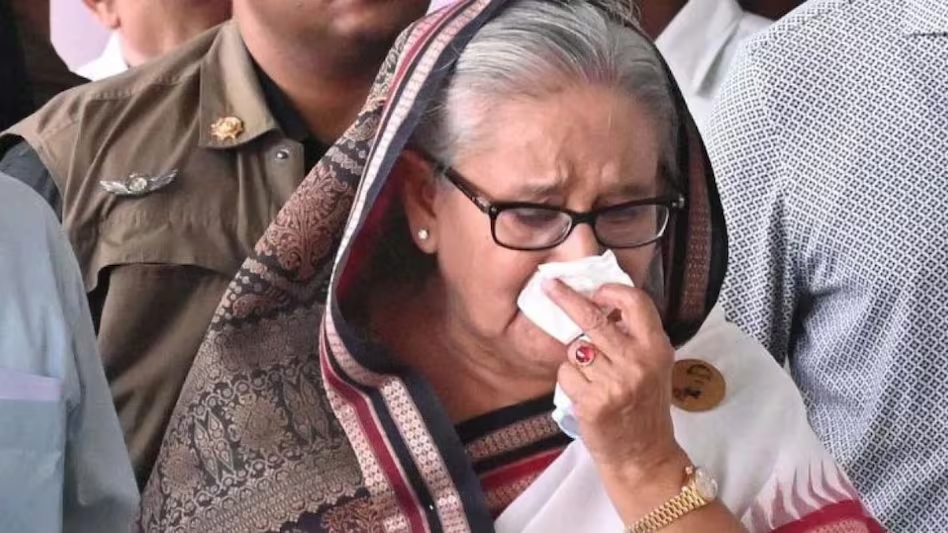I read a LiveMint article recently titled ‘All eyes on Rafah: Israel counters new trend with what your eyes fail to see’ which dissected the flare-up in Rafah, Gaza, where Israeli airstrikes caused significant civilian casualties. This incident, understandably, triggered a social media storm with the slogan “All Eyes on Rafah,” which quickly gained traction and was shared widely, including by celebrities.
The slogan emphasises the global focus on the humanitarian impact of the conflict. In response, Israel launched a counter-campaign to highlight the plight of Israeli hostages held by Hamas, shifting the narrative to its own grievances. This dual narrative, in my opinion, underscores the power of social media in modern conflicts, where public perception can be swayed by compelling imagery and strategic messaging.
The article highlights the intricate dance of propaganda and counterpropaganda, revealing how both sides use digital platforms to garner international support and sympathy. This scenario illustrates the broader challenges of the Israel-Palestine conflict, where every action and reaction is scrutinised on a global stage, and the fight for the moral high ground is as fierce as the physical battle.
Additionally, it may be imperative to note that the viral phenomenon of an AI-generated image with the slogan “All Eyes on Rafah,” emerged in the wake of an Israeli airstrike in a Palestinian territory that resulted in at least 45 casualties. This image, shared over 47 million times, according to BBC, by notable figures like Dua Lipa and Lewis Hamilton, and the entire Bollywood and Tollywood brigade, became a supposed symbol of lobal condemnation of the strike.
The phrase originated from a warning by a World Health Organization official about the potential devastation in Gaza, which activists later adopted. The image’s viral success is attributed to its simplicity, the emotional context of the incident, and the amplification by celebrities.
Having said that, it may be an opportune moment to explore different outcomes of an eventuality where the war does end at some point. What does that reality look like for Israel, Palestinians and the world?
Also read: Red Sea Crisis
Hypothetical outcome of Israel taking over Gaza and the West Bank
The hypothetical scenario where Israel takes over Gaza and the West Bank, leading to the absence of a recognised Palestinian state, unfolds into a myriad of complex and fraught challenges. These challenges span across demographic and citizenship issues, human rights and international law, security concerns, economic and social impact, international relations, and potential comparisons to persecuted communities. Each of these areas presents significant obstacles and raises critical questions about the future stability and ethics of such an outcome.
Demographic and Citizenship Issues
If Israel were to absorb Gaza and the West Bank into its fold, one of the foremost challenges would be addressing the status quo of millions of Palestinians living in these territories. This situation raises critical questions about citizenship, rights, and integration. The Palestinians, who form a substantial population, would need clear status definitions. If Israel fails to grant equal rights and citizenship to these Palestinians, it risks creating a two-tiered system that many would see as a form of apartheid. Such a system would not only be ethically and morally problematic but could also lead to severe domestic unrest.
The integration of these individuals into Israeli society would require comprehensive policies to ensure their rights to work, education, healthcare, and political participation. The lack of such policies could lead to widespread disenfranchisement and socio-political instability within Israel, exacerbating tensions and potentially leading to violent uprisings. The demographic shift would also influence Israeli politics, potentially altering electoral outcomes and political power dynamics, thereby complicating governance and policy-making.
Human Rights and International Law
The international community would likely perceive Israel’s takeover of Gaza and the West Bank as a violation of Palestinian rights to self-determination, a fundamental principle of international law. Such an action could lead to heightened scrutiny and potential sanctions against Israel for perceived human rights abuses and violations of international law. Although, if history is to be believed, there would hardly be any real repercussions for Tel Aviv either from the US or the UK. And let’s be honest, those are the only two that matter, in terms of defence, economy and cultural appropriation.
However, The United Nations and various human rights organisations might condemn the takeover, leading to international isolation and economic sanctions. These sanctions could have severe repercussions on Israel’s economy and its international standing.
Additionally, the continued denial of Palestinian self-determination could inspire a resurgence in global solidarity movements, similar to those seen during the South African apartheid era. International legal bodies could also pursue action against Israel, leading to prolonged legal battles and further isolating Israel on the global stage. This scenario underscores the importance of adhering to international norms and the significant consequences of diverging from them. But these are all big ‘Ifs’, because clearly, “ain’t nobody got time for that.”
Security Concerns
The absorption of Gaza and the West Bank by Israel is unlikely to resolve existing security concerns; rather, it might exacerbate them. The longstanding resistance from Palestinians could continue or even intensify, leading to ongoing conflict and instability. Militant groups in Gaza and the West Bank might see the takeover as an existential threat, prompting them to escalate their activities. This could lead to an increase in violent clashes, terrorist attacks, and a perpetual state of unrest.
Israel would need to deploy substantial military resources to maintain control and security, which could strain its defence capabilities and economy. The constant state of vigilance required to counter resistance would also take a psychological toll on both Israeli and Palestinian populations, perpetuating a cycle of fear and hostility. Furthermore, the international community might view Israel’s security measures as oppressive, leading to further condemnation and isolation.
All Eyes on Rafah – Economic and Social Impact
Managing the economic and social integration of Gaza and the West Bank would present significant challenges. The costs associated with infrastructure development, social services, and economic development in these regions would be substantial. Gaza and the West Bank, having suffered from years of conflict and economic blockade, would require massive investments in rebuilding and modernization.
Israel would need to address issues such as poverty, unemployment, and inadequate healthcare and education systems in these areas. The economic burden of integrating these regions could strain Israel’s finances and potentially lead to economic downturns.
Moreover, the social integration of Palestinians into Israeli society would require extensive efforts to bridge cultural, religious, and social divides. Failure to adequately address these economic and social challenges could lead to increased poverty and disenfranchisement, fuelling further unrest and instability.
International Relations – Goodbye Abraham Accords!
Israel’s relations with many countries, especially in the Arab and Muslim world, could deteriorate further if it were to take over Gaza and the West Bank. This action could lead to increased diplomatic isolation and potential economic consequences. Arab and Muslim countries might sever diplomatic ties, impose trade embargoes, and support international sanctions against Israel. The takeover could also polarise global opinion, with countries aligning either for or against Israel, complicating international diplomacy.
Furthermore, the United States and other Western allies of Israel might find themselves in a difficult position, balancing their support for Israel with their commitment to international law and human rights. The geopolitical ramifications of such a scenario could be profound, potentially leading to realignments in regional alliances and increased instability in the Middle East.
Comparisons to Persecuted Communities
A very curious friend of mine, asked me if, by the end of it all, Israel does manage to absorb Gaza and the West Bank into its territories, would that leave the remaining Palestinians as stateless immigrants or like the Rohingyas? That got me twisting my narrative a little further to compare this hypothetical situation to the persecution of the Rohingyas or other marginalised communities, and immediately several factors came into play.
If Palestinians were systematically deprived of rights, discriminated against, or forcibly displaced, parallels could be drawn to other instances of persecution. The degree of persecution would significantly determine the nature of the situation.
Systematic deprivation of rights could lead to widespread international condemnation and intervention. The global response, including that of major powers and international organisations, would be crucial in shaping the outcome. Strong international condemnation and intervention could alter the course of events, potentially leading to sanctions, humanitarian aid interventions, and political pressure on Israel to change its policies.
This comparison underscores the importance of upholding human rights and the severe consequences of failing to do so. In other words, Israel be doing whatever the hell it deems as a fit response and there’s nothing its allies and critics could do to stop them. Why? Because it’s not happening in their borders, the sword is not hanging above their heads and Hamas hasn’t always played fair – in fact, they started this particular conflict and violence by murdering over 1200 civilians in Israel on October 7, if you can recollect.
To put it plainly, after much ado and liberal hypothesising of current events, and in my limited understanding, it is my belief that the absorption of Gaza and the West Bank by Israel would create a highly contentious and unstable situation with far-reaching implications for human rights, regional stability, and international relations.
The potential for persecution or severe inequality would depend on how Israel manages the integration and rights of the Palestinian population in these territories. This hypothetical scenario highlights the complexities and challenges of resolving the Israeli-Palestinian conflict and underscores the importance of pursuing a peaceful and equitable solution that respects the rights and aspirations of all parties involved. But what constitutes as peaceful, equitable and justice, I wonder. This reminds of me a quote from a fairly old film called ‘Aaranya Kaandam’, which itself is based on a excerpt from a piece of advice Arjuna receives from Lord Krishna. It goes something like this:
“எது தர்மம்?
எது தேவையோ அதுவே தர்மம்”
Translation:
“What is Dharma?” (The path of truth and cosmic law)
“Whatever is needed.” (Karma determines what your need is)




